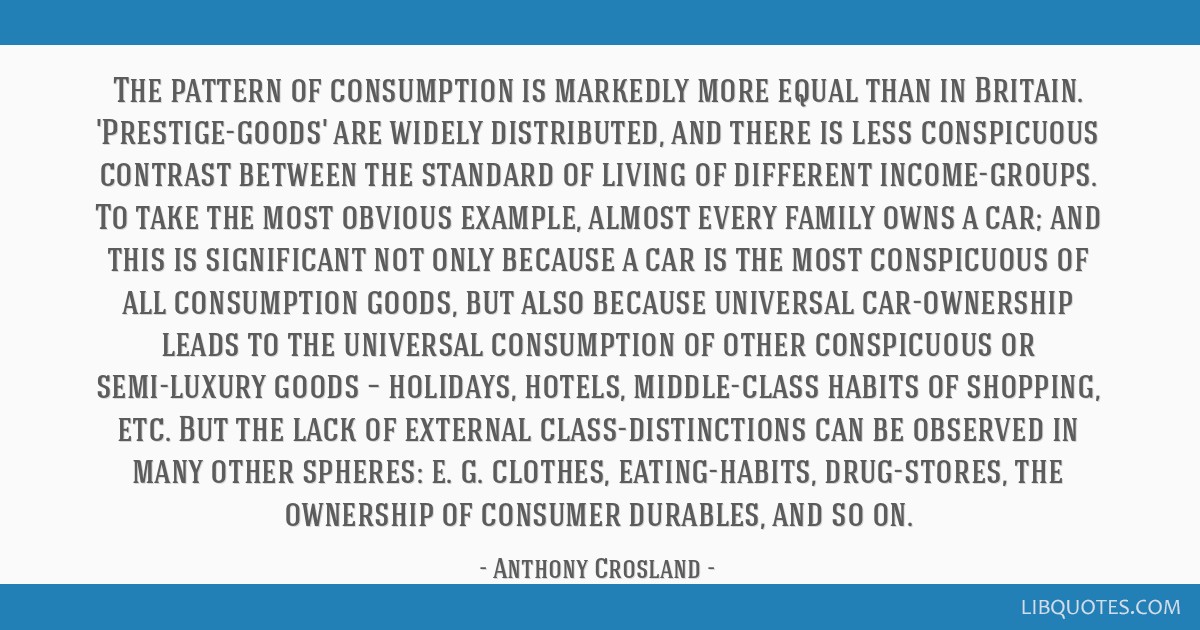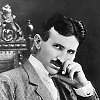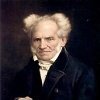The pattern of consumption is markedly more equal than in Britain. 'Prestige-goods' are widely distributed, and there is less conspicuous contrast between the standard of living of different income-groups. To take the most obvious example, almost every family owns a car; and this is significant not only because a car is the most conspicuous of all consumption goods, but also because universal car-ownership leads to the universal consumption of other conspicuous or semi-luxury goods – holidays, hotels, middle-class habits of shopping, etc. But the lack of external class-distinctions can be observed in many other spheres: e. g. clothes, eating-habits, drug-stores, the ownership of consumer durables, and so on.
The Future of Socialism by Anthony Crosland.























